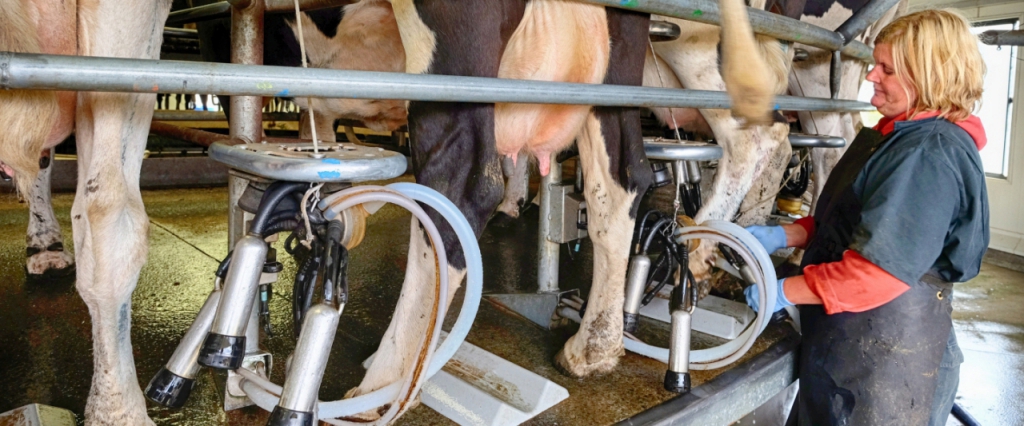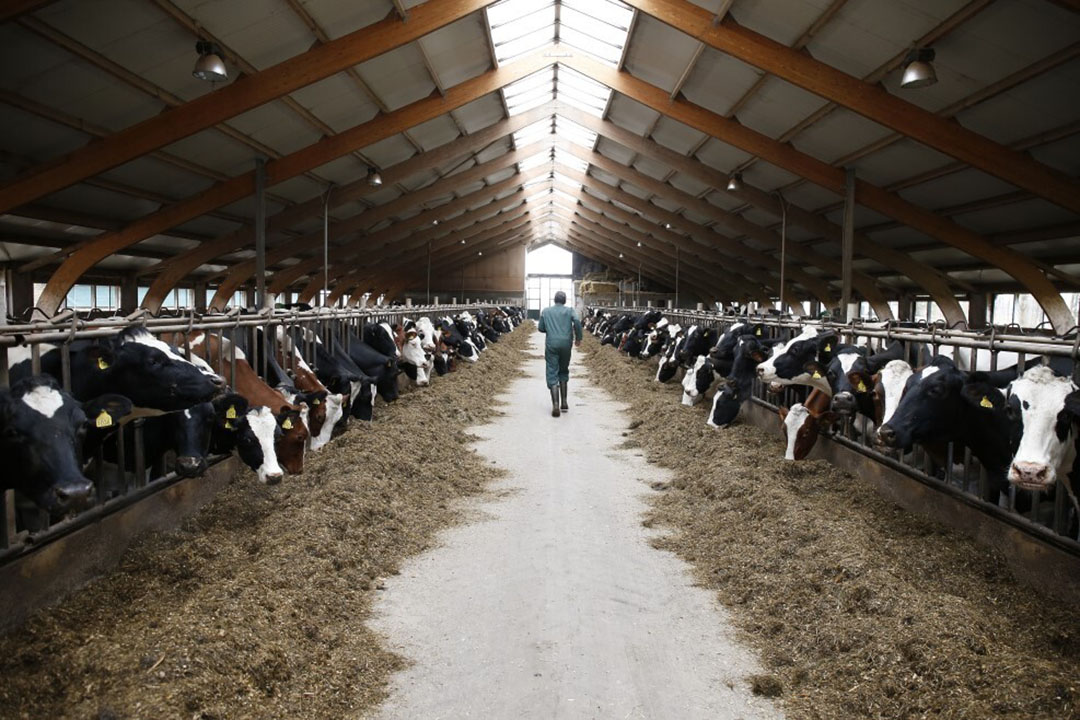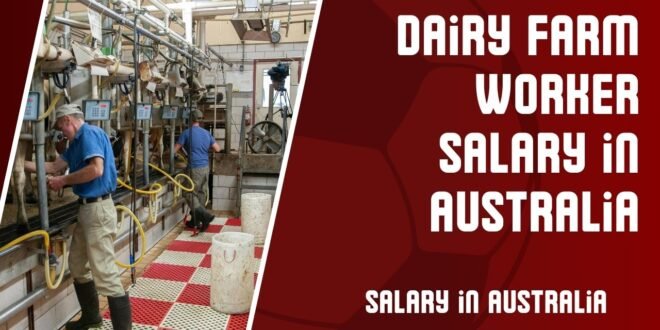Dairy farm workers play an important role in Australia’s agriculture. They help produce milk and other dairy products that many people rely on.
Understanding the salary of dairy farm workers is crucial for those considering this career. In Australia, the income for dairy farm workers can vary based on several factors. These include experience, location, and the size of the farm. For newcomers, this information helps set realistic salary expectations.
It also offers insights into job stability and growth opportunities in the dairy industry. With a growing demand for dairy products, knowing the potential earnings can guide future choices. Let’s explore the salary landscape for dairy farm workers across Australia.
You May Also Like:

Current Salary Trends
Dairy farm workers in Australia play a vital role in the agricultural sector. Understanding their salary trends is essential for both workers and employers. Salary trends show how much dairy farm workers earn across different regions. This information helps workers make informed decisions about their careers. It also guides employers in setting competitive wages.
Average Salaries By Region
The average salary for dairy farm workers varies across Australia. Some regions pay more due to demand and cost of living. Here are the average salaries by key regions:
| Region | Average Salary (AUD) |
|---|---|
| New South Wales | $56,000 |
| Victoria | $54,000 |
| Queensland | $53,000 |
| Western Australia | $58,000 |
| South Australia | $55,000 |
Key points about regional salaries:
- Western Australia offers the highest average salaries.
- New South Wales and Victoria are also competitive.
- Queensland salaries are slightly lower but still reasonable.
- Regional areas may offer different pay rates compared to urban centers.
Understanding these regional differences helps workers choose the best locations for their careers. Employers can also attract talent by offering competitive salaries.
Factors Affecting Salaries
Several factors influence dairy farm worker salaries in Australia. Understanding these factors can help workers and employers alike.
Key factors include:
- Experience: More experienced workers usually earn higher wages.
- Location: Salaries vary by region due to demand and living costs.
- Job Role: Specialized roles, like herd management, often pay more.
- Farm Size: Larger farms may offer higher salaries due to their scale.
- Seasonal Demand: Wages can increase during peak seasons.
A summary of these factors:
| Factor | Impact on Salary |
|---|---|
| Experience | Higher wages for skilled workers |
| Location | Higher salaries in urban regions |
| Job Role | Specialized roles offer better pay |
| Farm Size | Larger farms can pay more |
| Seasonal Demand | Wages may rise during busy times |
These factors create a complex picture of salary trends. Workers should consider these elements when planning their careers in dairy farming.
Job Roles on Dairy Farms
Dairy farms in Australia play a vital role in the agricultural sector. Many people work on these farms, each with specific duties. Understanding the job roles helps in knowing the salaries and responsibilities. This section explores two key roles on dairy farms: Milking Operators and Farm Managers.
Milking Operators
Milking Operators are essential to dairy farms. They ensure cows are milked properly and efficiently. Their work is crucial for the farm’s productivity. These operators handle the milking machines and monitor the health of the cows.
- Prepare cows for milking.
- Operate milking machines.
- Monitor cow health and milk quality.
- Maintain milking equipment.
- Record milk production data.
Training is often required for this role. Most Milking Operators learn on the job. They may also attend short courses. Pay for Milking Operators varies based on experience and location. Below is a table showing average salaries:
| Experience Level | Average Salary (AUD) |
|---|---|
| Entry Level | $45,000 – $55,000 |
| Mid-Level | $55,000 – $65,000 |
| Experienced | $65,000 – $75,000 |
Milking Operators often work long hours. They may work early mornings or late evenings. This job can be physically demanding but rewarding. Operators play a key role in dairy production.
Farm Managers
Farm Managers oversee all operations on a dairy farm. They are responsible for managing workers and ensuring the farm runs smoothly. This role requires strong leadership skills and a good understanding of farming practices.
- Plan and coordinate daily farm activities.
- Manage staff and assign tasks.
- Monitor animal health and welfare.
- Ensure compliance with regulations.
- Manage budgets and finances.
Farm Managers often have a background in agriculture. Many have degrees or diplomas in related fields. The salary for Farm Managers is generally higher than for Milking Operators. Below is a table showing average salaries:
| Experience Level | Average Salary (AUD) |
|---|---|
| Entry Level | $60,000 – $70,000 |
| Mid-Level | $70,000 – $85,000 |
| Experienced | $85,000 – $100,000 |
Farm Managers face many challenges. They must adapt to changing conditions. Their decisions directly affect the farm’s success. This role is vital for the growth of the dairy industry.
Salary Comparisons
Dairy farm workers play a vital role in Australia’s agriculture industry. Their salary can vary based on several factors. Understanding salary comparisons helps workers make informed choices. Comparing dairy farm workers to others in agriculture reveals important insights. Urban and rural areas also show different pay scales. These comparisons highlight the financial aspects of this profession.
Dairy Workers Vs Other Agriculture Jobs
Dairy workers earn different salaries compared to other agriculture jobs. The average salary for a dairy worker in Australia is around AUD 55,000 per year. This figure can change based on experience and location.
Here are some typical salaries for various agriculture roles:
| Job Title | Average Salary (AUD) |
|---|---|
| Dairy Worker | 55,000 |
| Crop Farmer | 60,000 |
| Livestock Farmer | 58,000 |
| Agricultural Technician | 65,000 |
While dairy workers earn less than some roles, they have unique benefits:
- Stable job opportunities.
- Hands-on work with animals.
- Strong community ties.
These factors make dairy farming appealing despite the lower salary compared to other agriculture jobs.
Urban VS Rural Salaries
Location significantly affects salaries for dairy workers. Urban areas often offer higher wages. However, the cost of living is also higher. In contrast, rural areas may have lower salaries, but living costs are lower.
Here’s a breakdown of average salaries:
| Location | Average Salary (AUD) |
|---|---|
| Urban Areas | 60,000 |
| Rural Areas | 52,000 |
Factors influencing these salaries include:
- Demand for dairy products.
- Access to resources and technology.
- Local competition for workers.
Understanding these differences helps dairy workers choose the best location for their career. The right choice can lead to better financial stability.
Employment Benefits
Dairy farm workers in Australia enjoy various employment benefits. These benefits enhance their overall job satisfaction and financial security. Understanding these perks is essential for anyone considering a career in this field. The benefits can significantly impact a worker’s quality of life. From health insurance to housing allowances, these factors play a crucial role in attracting and retaining workers.
Health Insurance
Health insurance is a vital benefit for dairy farm workers. Many farms provide health coverage as part of the employment package. This coverage helps workers access medical care without high out-of-pocket expenses. Here are some key points about health insurance for dairy farm workers:
- Coverage may include medical, dental, and vision care.
- Employers often cover a significant portion of the premium.
- Workers can choose from different plans based on their needs.
- Some farms offer family coverage options.
Many workers value the peace of mind that comes with health insurance. It ensures they can seek medical help when needed. Below is a simple table showing average health insurance coverage:
| Type of Coverage | Average Cost per Month | Employer Contribution |
|---|---|---|
| Individual Plan | $150 | 70% |
| Family Plan | $400 | 60% |
This information highlights the importance of health insurance in the industry. Workers benefit from comprehensive plans that meet their health needs.
Housing and Transport Allowances
Housing and transport allowances are significant benefits for dairy farm workers. Many farms provide accommodation or financial support for housing costs. This assistance makes it easier for workers to settle in rural areas.
Transport allowances help workers commute to and from the farm. This support is crucial in regions where public transport is limited. Here are some details about these allowances:
- Housing allowances can cover rent or mortgage payments.
- Employers may offer on-site housing options.
- Transport allowances can be a fixed monthly amount.
- Some farms provide vehicles for work-related travel.
In some cases, farms offer shared housing to reduce costs. This setup fosters a sense of community among workers. Below is a table showing potential housing and transport allowances:
| Allowance Type | Average Monthly Amount |
|---|---|
| Housing Allowance | $300 |
| Transport Allowance | $150 |
These allowances significantly help dairy farm workers. They provide financial relief, making life easier and more manageable.
Work Hours and Conditions
Dairy farm workers in Australia play a vital role in the agricultural sector. Their work hours and conditions greatly affect their daily lives and earnings. Understanding these factors helps in assessing the overall salary of dairy farm workers. Most dairy farm jobs demand long hours in varied conditions. This section will explore typical work hours and how these hours impact earnings.
You May Also Like:
Current Job Vacancies in Canada for with VISA Sponsorship

Typical Work Hours
Dairy farm workers usually have a demanding schedule. Most work early in the morning and late in the evening. The typical workweek can vary based on the farm’s size and operations. Here are some key points about their work hours:
- Standard work hours range from 38 to 60 hours per week.
- Morning shifts often start around 4:00 AM and last until 10:00 AM.
- Evening shifts generally run from 3:00 PM to 8:00 PM.
- Weekend work is common, especially during peak seasons.
The following table summarizes the typical daily work schedule:
| Day | Morning Shift | Evening Shift |
|---|---|---|
| Monday | 4:00 AM – 10:00 AM | 3:00 PM – 8:00 PM |
| Tuesday | 4:00 AM – 10:00 AM | 3:00 PM – 8:00 PM |
| Wednesday | 4:00 AM – 10:00 AM | 3:00 PM – 8:00 PM |
| Thursday | 4:00 AM – 10:00 AM | 3:00 PM – 8:00 PM |
| Friday | 4:00 AM – 10:00 AM | 3:00 PM – 8:00 PM |
| Saturday | 4:00 AM – 10:00 AM | 3:00 PM – 8:00 PM |
| Sunday | 4:00 AM – 10:00 AM | Off |
These hours can lead to fatigue. Workers must be prepared for unpredictable weather and physical tasks. This routine can impact personal life and health.
Impact on Earnings
The number of hours a dairy farm worker puts in directly affects their earnings. More hours typically mean higher pay. Below are some insights into how work hours impact income:
- Hourly wage ranges from $20 to $30 AUD.
- Overtime pay often applies for hours worked beyond 38 per week.
- Seasonal demands can lead to increased hours and pay.
- Extra shifts may be available during calving and milking seasons.
Here’s a breakdown of potential weekly earnings based on hours worked:
| Hours Worked | Estimated Weekly Earnings (AUD) |
|---|---|
| 38 | $760 |
| 45 | $900 |
| 50 | $1,000 |
| 60 | $1,200 |
Workers who manage to secure overtime or extra shifts can significantly boost their earnings. Understanding these factors helps workers plan their schedules and finances.
Skill Development
Skill development is key for dairy farm workers in Australia. It helps them earn a better salary and improve job security. Many workers can find various training and certification programs. These opportunities enhance their skills and knowledge. This leads to higher demand for their work. Employers value skilled workers. They often offer better pay and benefits.
Training Opportunities
Training is essential for dairy farm workers. It helps them stay updated with modern farming practices. Many farms offer on-the-job training. This allows workers to learn directly from experienced farmers. Here are some common training options:
- Safety training
- Animal husbandry workshops
- Equipment operation courses
- Environmental management training
Training programs often include:
| Type of Training | Duration | Provider |
|---|---|---|
| Safety and Handling | 1 day | Local Agricultural College |
| Animal Health | 2 days | Industry Association |
| Machinery Operations | 3 days | Private Training Provider |
These training programs help workers gain important skills. They prepare workers for various tasks on the farm. Better training often leads to better pay and job satisfaction.
Certification Programs
Certification programs offer formal recognition of skills. These programs help dairy farm workers stand out. Many employers prefer certified workers. Here are some common certifications:
- Certificate III in Agriculture
- Certificate IV in Dairy Production
- Animal Welfare Certification
Each certification focuses on different skills:
| Certification | Focus Area | Duration |
|---|---|---|
| Certificate III in Agriculture | General Farming Skills | 6-12 months |
| Certificate IV in Dairy Production | Advanced Dairy Management | 12-24 months |
| Animal Welfare Certification | Animal Care Practices | Varies |
These certifications often lead to better job positions. Workers can earn higher salaries with recognized skills. Employers value certified workers for their expertise.
Future Outlook
The future outlook for dairy farm workers in Australia shows promise. The demand for dairy products continues to rise, leading to more job openings. This trend suggests a potential increase in salaries for dairy farm workers. Understanding what this means for workers is essential. It helps them make informed career choices in the dairy industry.
Projected Salary Growth
Salary growth for dairy farm workers is expected to improve. Several factors influence this trend. These include the rising demand for dairy products and improved farming technologies. Workers can anticipate better pay as the industry grows.
According to recent studies, the average salary for dairy farm workers ranges from $50,000 to $60,000 per year. This figure is projected to increase by about 5% annually over the next five years. Here’s a breakdown of expected salary growth:
| Year | Average Salary | Projected Growth |
|---|---|---|
| 2024 | $52,500 | 5% |
| 2025 | $55,125 | 5% |
| 2026 | $57,881 | 5% |
| 2027 | $60,775 | 5% |
| 2028 | $63,814 | 5% |
In summary, salary growth looks positive. Workers may find better pay and benefits in the coming years. This encourages many to pursue careers in the dairy farming sector.
Emerging Job Opportunities
The dairy industry is evolving. New job opportunities are emerging in various areas. Workers can expect roles not only on farms but also in technology and management.
- Farm Management: Skilled workers can move into management roles. These positions often pay more and involve overseeing daily operations.
- Technology Specialists: As farms adopt new technologies, experts are needed. Roles may include managing automated milking systems.
- Quality Control: Ensuring product quality is crucial. Workers in this area monitor dairy products for safety and quality.
- Research and Development: New products and methods are always in demand. Opportunities in this field focus on improving dairy farming techniques.
The dairy sector also emphasizes sustainability. This focus creates roles in environmental management. Workers can help implement eco-friendly practices.
Overall, the future holds many possibilities. Workers can explore various paths in the dairy industry. With the right skills, they can find rewarding careers ahead.
Conclusion
Dairy farm workers in Australia earn a fair wage. Their salary can change based on many factors. These include experience, location, and farm size. Working conditions also impact pay. Many workers find the job rewarding, both financially and personally. Learning about salaries helps you make informed choices.
This industry offers growth and opportunities. Understanding the pay scale is important for anyone considering this career. A dairy farm job can be a stable and fulfilling path.
 AWE Credits Free VISA Consultancy Service in USA, UK, UAE, CANADA, Australia
AWE Credits Free VISA Consultancy Service in USA, UK, UAE, CANADA, Australia





